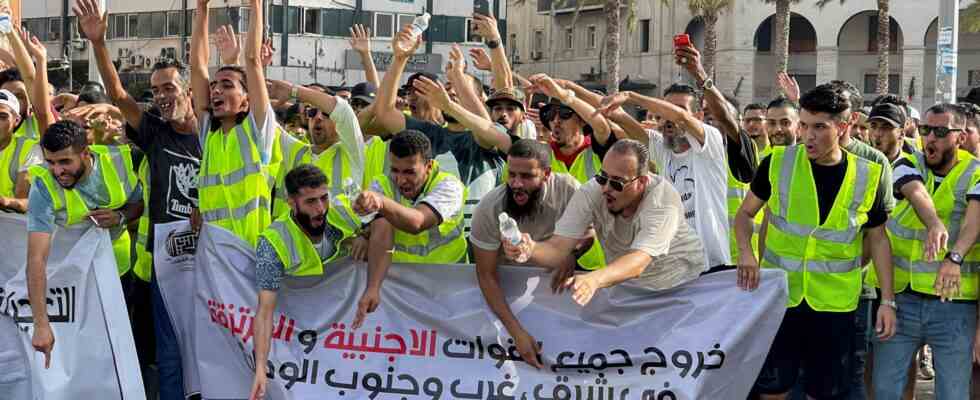Status: 07/02/2022 00:53
Hundreds of people have protested against poor living conditions and political standstill in Libya. In Tobruk, the crowd stormed the parliament building. The demonstrators demanded electricity and lower bread prices.
Angry demonstrators attacked the Libyan parliament in the east of the North African country. Images from Libyan television channels showed them lighting fires and throwing stones at the building in the city of Tobruk. A shot on social media showed a bulldozer ramming into a gate of Parliament. Several local television stations reported that the crowd managed to enter the parliament.
The Libyan news site “Al-Wasat” reported that the demonstrators were demanding the dissolution of parliament and new elections. At the same time, it was said that the protests were also directed against the poor living conditions in the country. “We want light,” chanted the people. Libya has been suffering from power outages for several days.
Demonstrations also in the capital Tripoli
According to the information, demonstrations had previously also taken place in other cities. In the western capital of Tripoli, among other places, several hundred people gathered in a central square to protest against the militias and leading politicians. One demonstrator said people had lost faith in leaders.
Civil war for more than ten years
Libya has been suffering from a civil war since 2011, which broke out after the fall of long-term ruler Muammar al-Gaddafi. Two governments are currently fighting for power. In the capital, the leadership is based around Prime Minister Abdul Hamid Dbaiba. At the same time, the government of ex-Interior Minister Fathi Baschaga claims power for itself. This is allied with the parliament in the east.
Parliament appointed Baschagha to head an interim government on February 10 in the eastern city of Tobruk. Baschagha was to replace Dbeibah, who has headed the government in Tripoli since 2020. However, Dbeibah only wants to cede power to a government elected by the people. He expressed his sympathy for the demonstrators.
disagreement about candidate
Talks between leading representatives of the warring factions in Geneva ended without a final agreement this week. It was about the constitutional framework for new elections. Both sides had reached a consensus on many issues, said UN special adviser Stephanie Williams.
Despite the progress, however, there is still disagreement over who will be allowed to run as a candidate in the first presidential election. Observers fear new fights should the negotiations finally fail.

